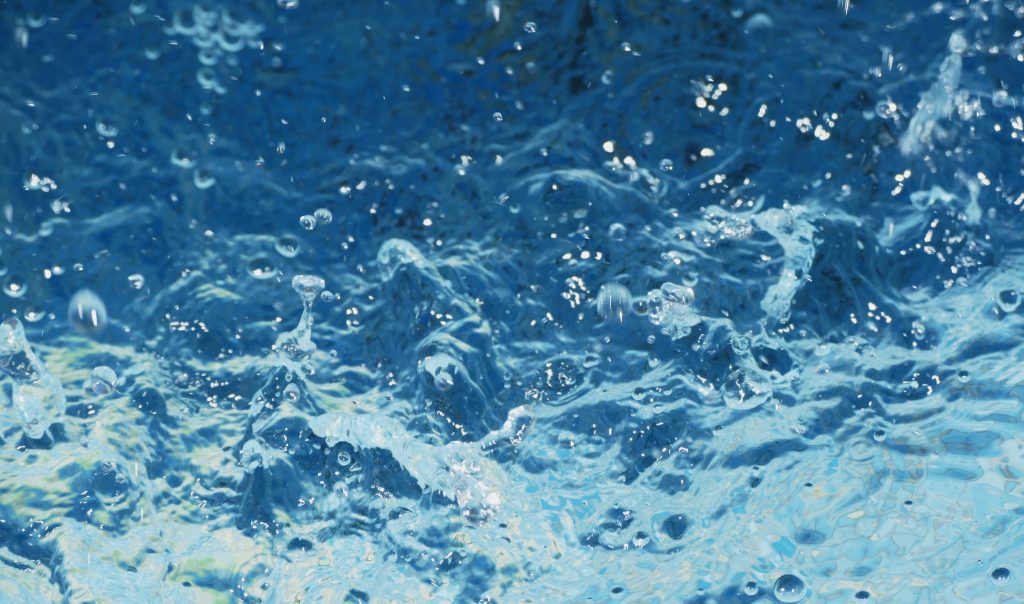Water is one of the most extraordinary chemical compounds on Earth. Although it surrounds us in our daily lives, we often forget how limited its resources are and how easily its delicate hydrological balance can be disrupted.
Below are 10 interesting facts that demonstrate just how extraordinary water is, why protecting water resources and developing water retention are crucial today, especially in the face of increasingly frequent droughts.
1. Water Cycles Endlessly. What You Drink Could Have Fallen as Rain Thousands of Years Ago
Every drop of water on Earth participates in the great hydrological cycle. The water we drink today could once have been part of a prehistoric glacier, fog over a tropical forest, or pre-Bronze Age groundwater. This cycle functions efficiently when soil and ecosystems have the capacity to retain water. In today’s age of urban development, we must ensure water retention to make sure it remains that way.
2. Without Water, There Is No Energy. Literally!
About 40% of water consumption in Europe goes to cooling thermal power plants. Water in hydropower plants is also needed to produce steam, drive turbines, and generate energy. Every drop retained in the landscape reduces the risk of power outages. Therefore, when river levels drop during droughts, power plants must reduce their output to avoid raising river water temperatures above acceptable levels.
3. Only 1% of the World’s Water Resources Are Suitable for Drinking
97% of the Earth’s water is saltwater, and another 2% is trapped in glaciers. Only 1% of water, which is found in lakes, rivers, and underground reservoirs, is suitable for direct human use. When retention is impaired, this small percentage becomes even more difficult to access.
4. Rainwater Disappears Faster Than You Think
In urbanized areas, up to 70-80% of rainwater flows over impermeable surfaces directly into sewers or rivers, instead of feeding the soil and groundwater. Therefore, even heavy rains without adequate water retention measures do not help improve drought conditions. Every garden, flower meadow, unpaved driveway, or retention reservoir significantly improves the local water balance.
5. Soil Is a Natural “Water Reservoir,” Larger Than All the Rivers Combined
Well-moistened soil can retain vast amounts of water, comparable to the resources of the largest lakes. The more it dries and degrades, the less it fulfills this role. Therefore, the fight against drought begins beneath our feet.
6. Trees Are Like Living Water Pumps
A single large tree can release up to 400 liters of water into the atmosphere daily through transpiration. Trees are responsible for the formation of local clouds and rain. For this reason, deforestation and the removal of field trees increase the risk of drought.
7. Water in the Landscape Cools by As Much As Several Degrees
Wetlands, ponds, and wet meadows lower ambient temperatures by several degrees. In cities they take the form of restored wetlands, floodplain parks, or rain gardens. These small “urban swamps” effectively cool the landscape and reduce the urban heat island effect.
8. Retention Doesn’t Have To Mean Large Reservoirs
As much as 80% of Poland’s water retention potential lies in so-called small retention areas: local depressions, field reservoirs, wetlands, oxbow lakes, rain gardens, water-retaining ditches, and blue-green infrastructure solutions. These are “small,” scattered elements that make a huge difference on a national scale.
9. Groundwater Is the “Savings Account” of Ecosystems
Groundwater feeds rivers during droughts, stabilizes soil temperatures, and even protects plants from heat. When groundwater levels drop, rivers dry up even when it rains, because there are no more reserves in the landscape. Retention is the best way to rebuild these hidden resources.
10. A Drop Retained Today Will Pay Off Tomorrow
It is estimated that improving retention by just 10% could significantly reduce the effects of drought in Poland, increasing summer river flows, improving soil moisture, reducing fires and agricultural losses. Water must be conserved, but above all, retained where it falls.

 PL
PL

